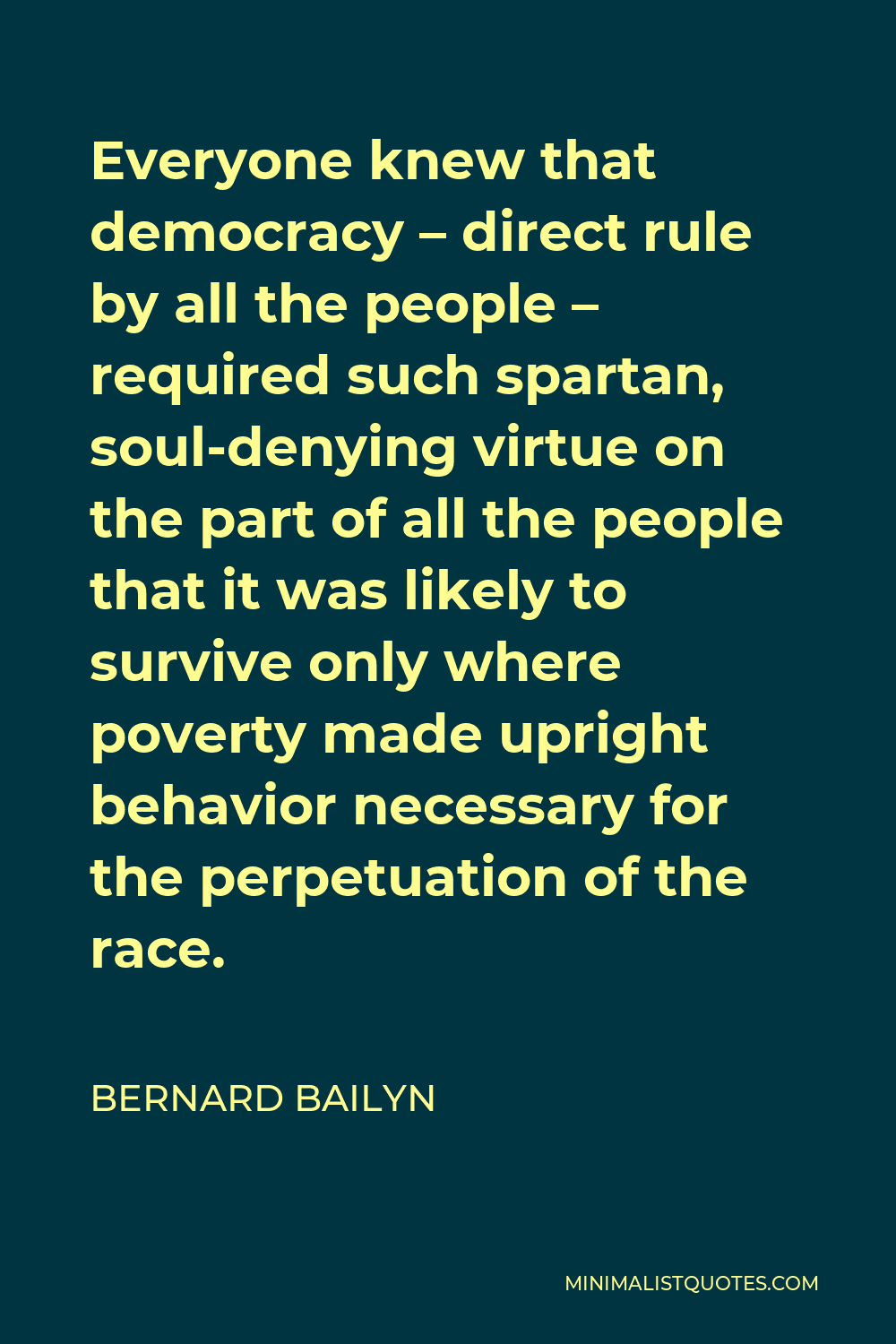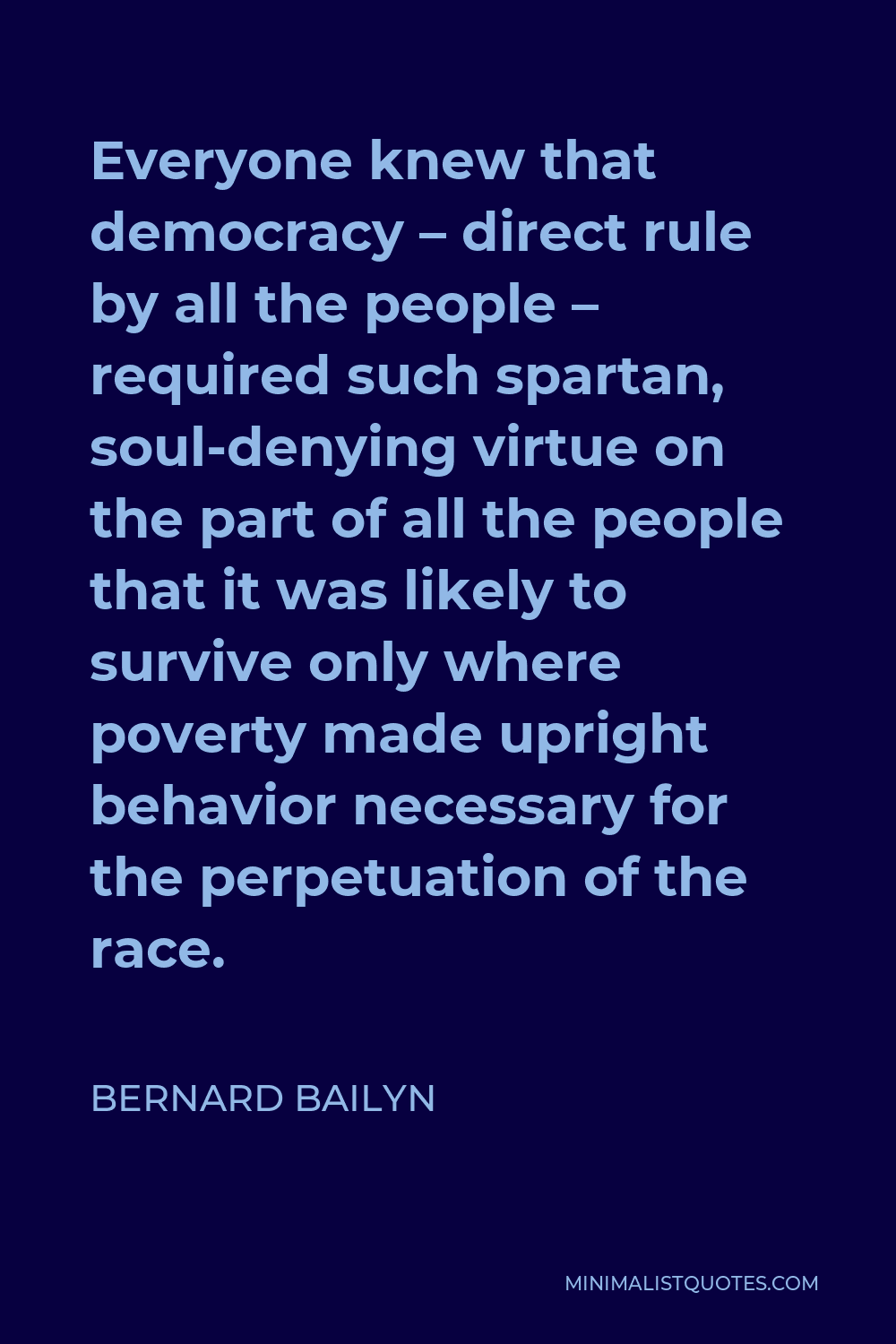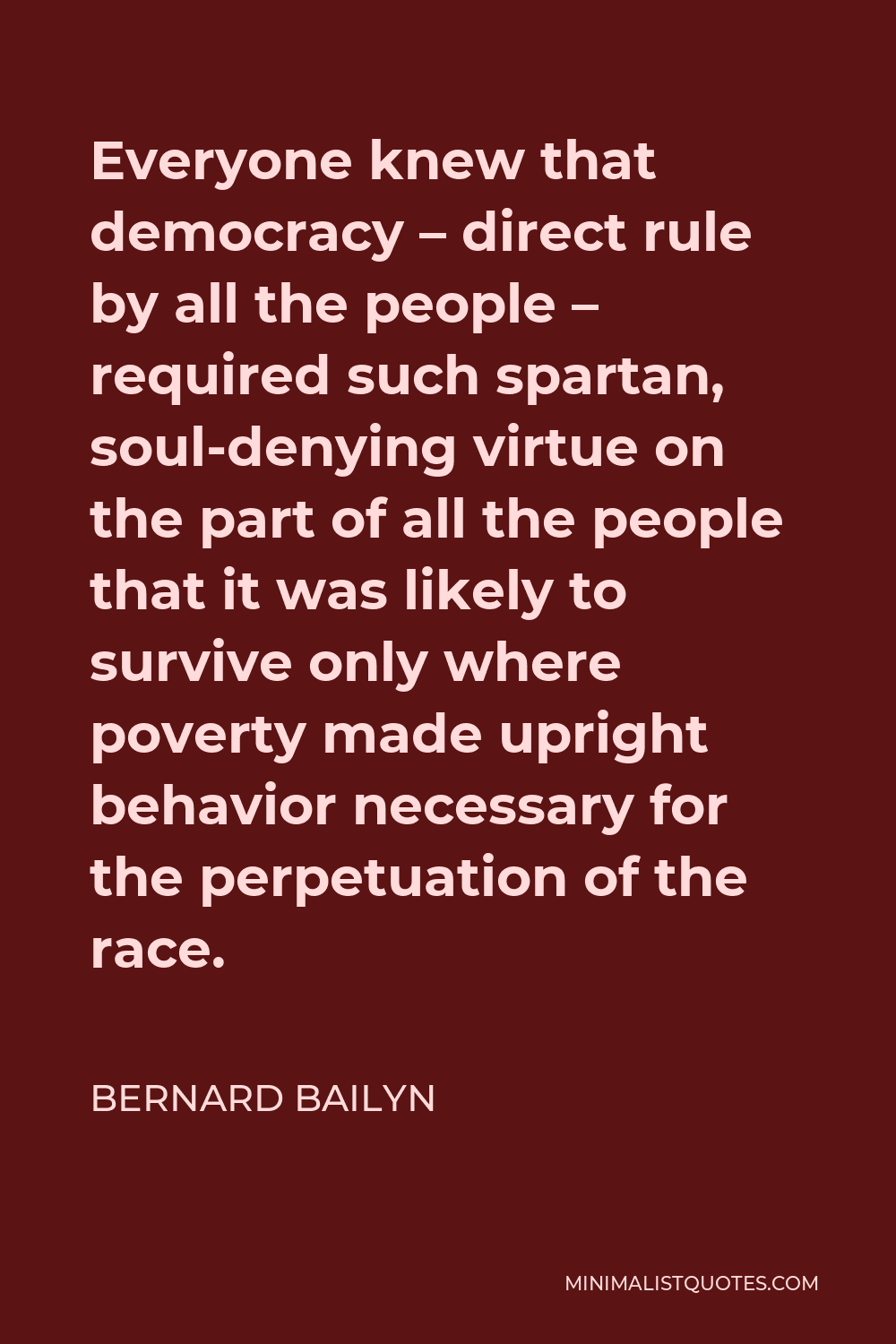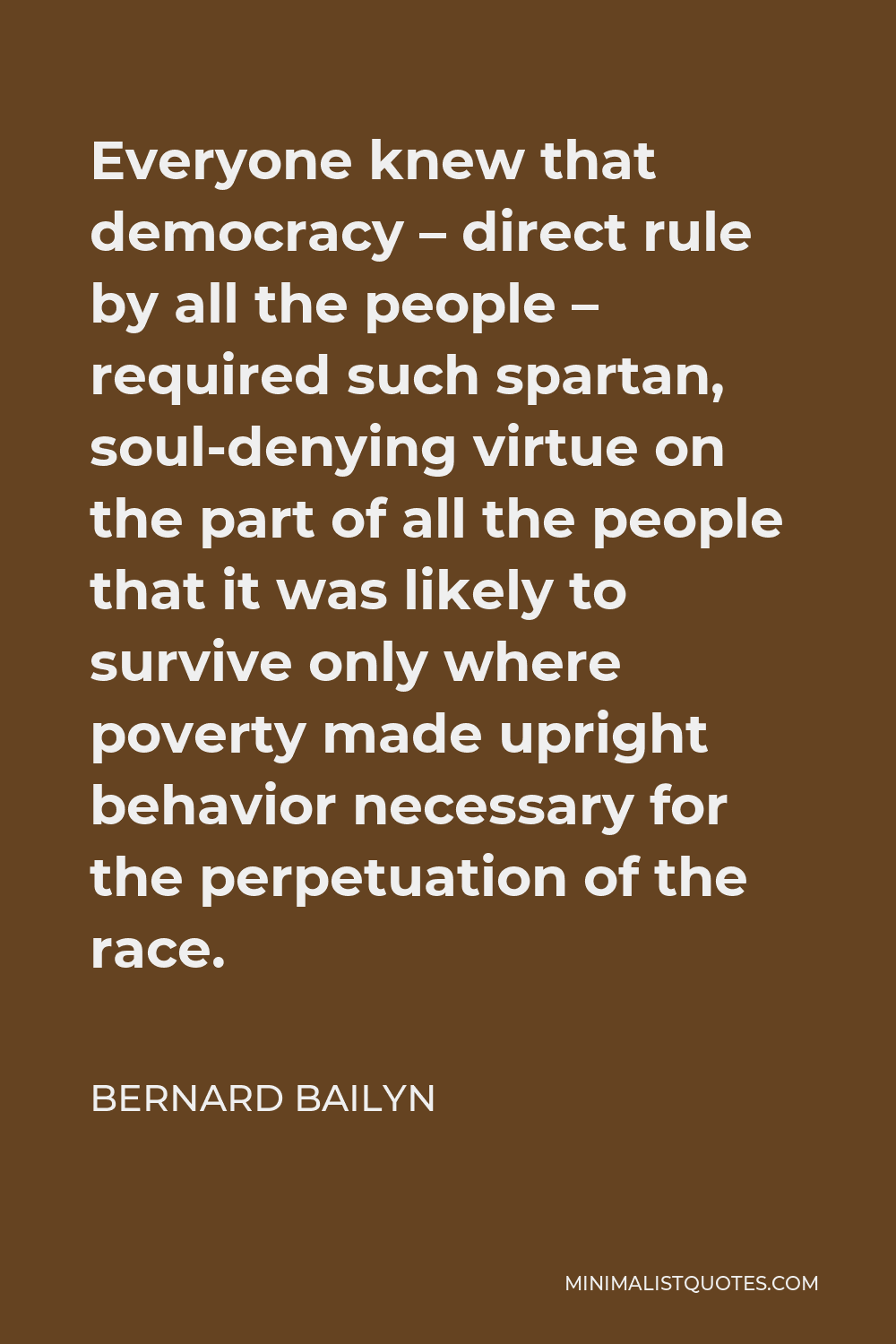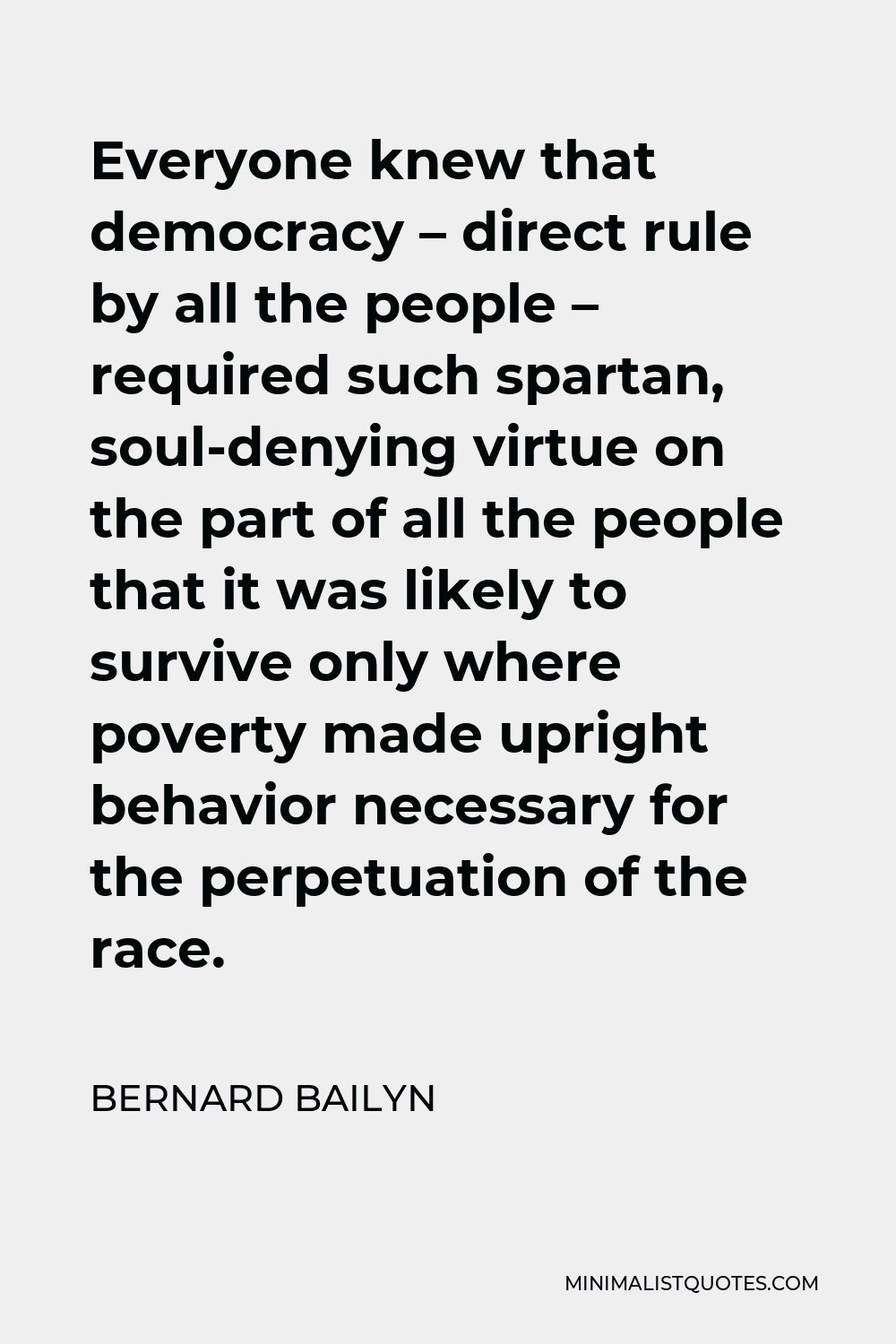It was an elevating, transforming vision: a new, fresh, vigorous, and above all morally regenerate people rising from the obscurity to defend the battlements of liberty and then in triumph standing forth, heartening and sustaining the cause of freedom everywhere.
BERNARD BAILYNEveryone knew that democracy – direct rule by all the people – required such spartan, soul-denying virtue on the part of all the people that it was likely to survive only where poverty made upright behavior necessary for the perpetuation of the race.
More Bernard Bailyn Quotes
-





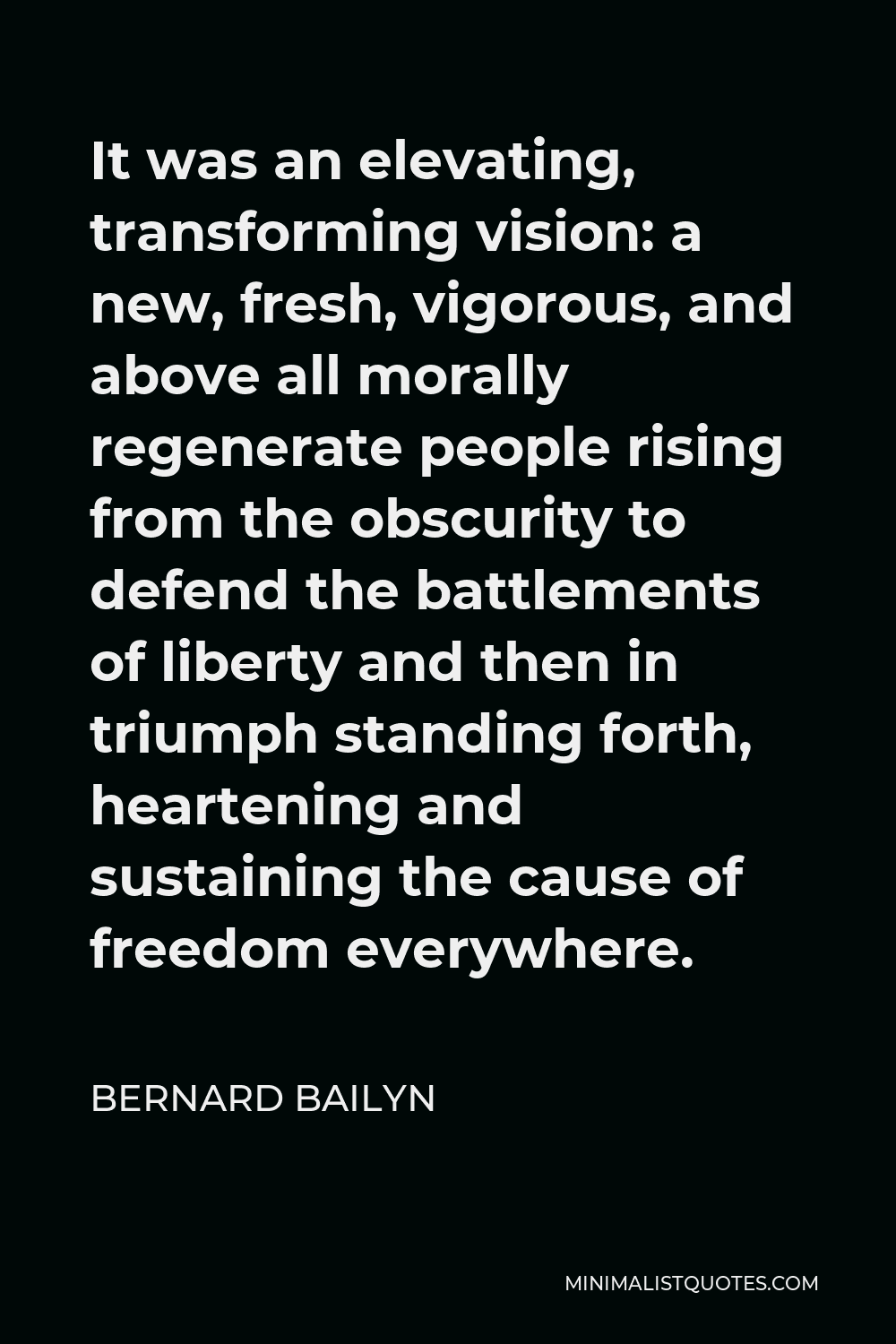
-






Instantly available without continuous presence is probably the best role a mother can play.
BERNARD BAILYN -





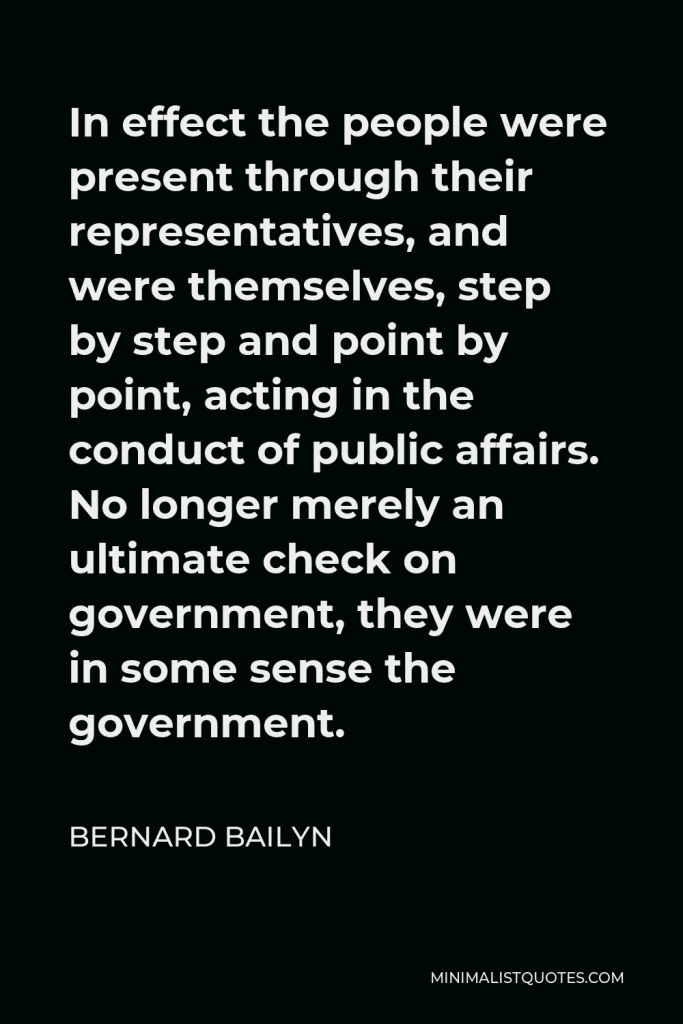

In effect the people were present through their representatives, and were themselves, step by step and point by point, acting in the conduct of public affairs. No longer merely an ultimate check on government, they were in some sense the government.
BERNARD BAILYN -






Emerging first in the form of denunciations of standing armies in the reign of William III, left an indelible imprint on the “country” mind everywhere in the English-speaking world.
BERNARD BAILYN -






The categories within which the colonists thought about the social foundations of politics were inheritances from classical antiquity, reshaped by seventeenth century English thought.
BERNARD BAILYN -





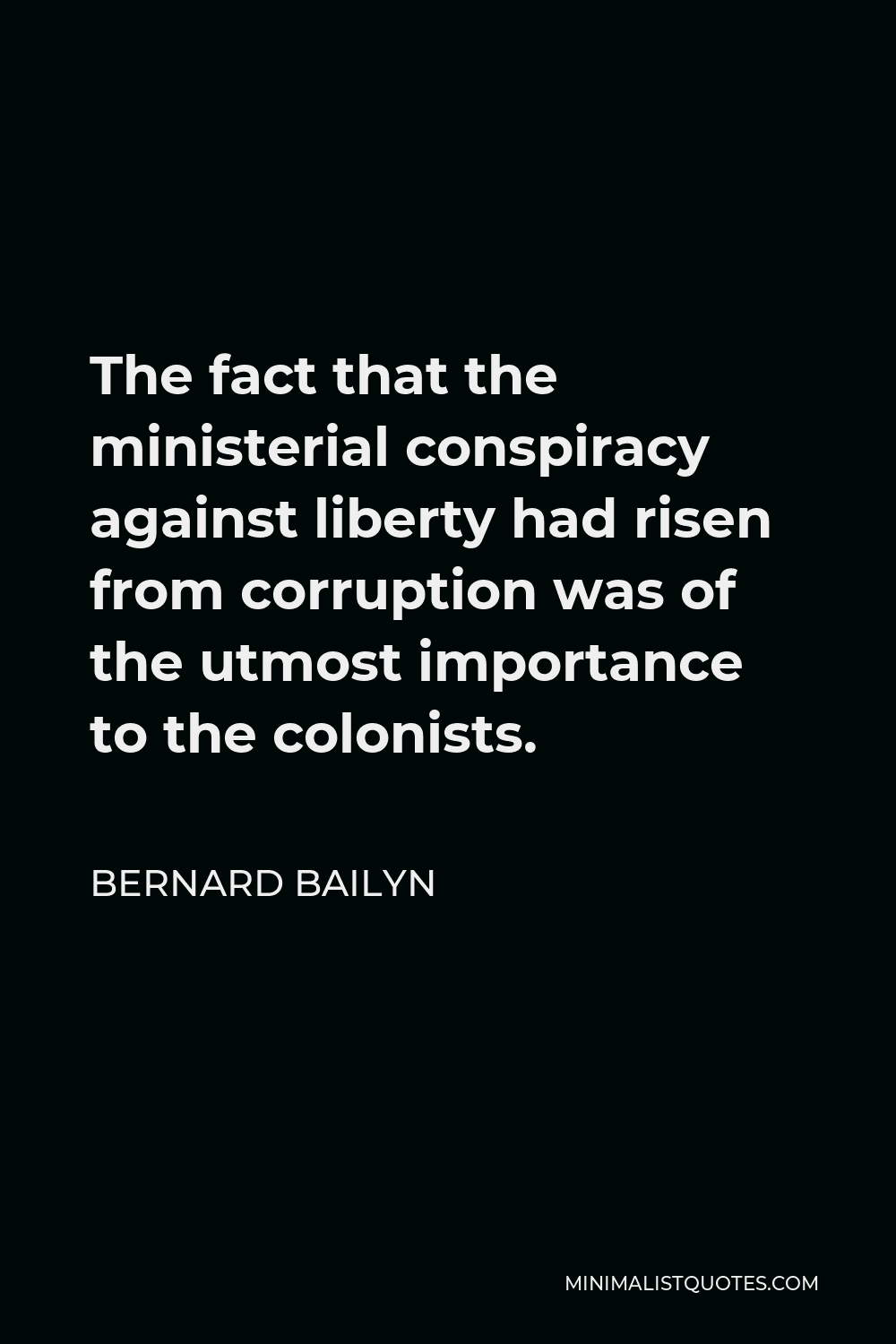
The fact that the ministerial conspiracy against liberty had risen from corruption was of the utmost importance to the colonists.
BERNARD BAILYN -






Not only by Americans themselves but by enlightened spokesmen of reform, renewal and hope wherever they may be-in London coffeehouses, in Parisian salons, in the courts of German princes.
BERNARD BAILYN -





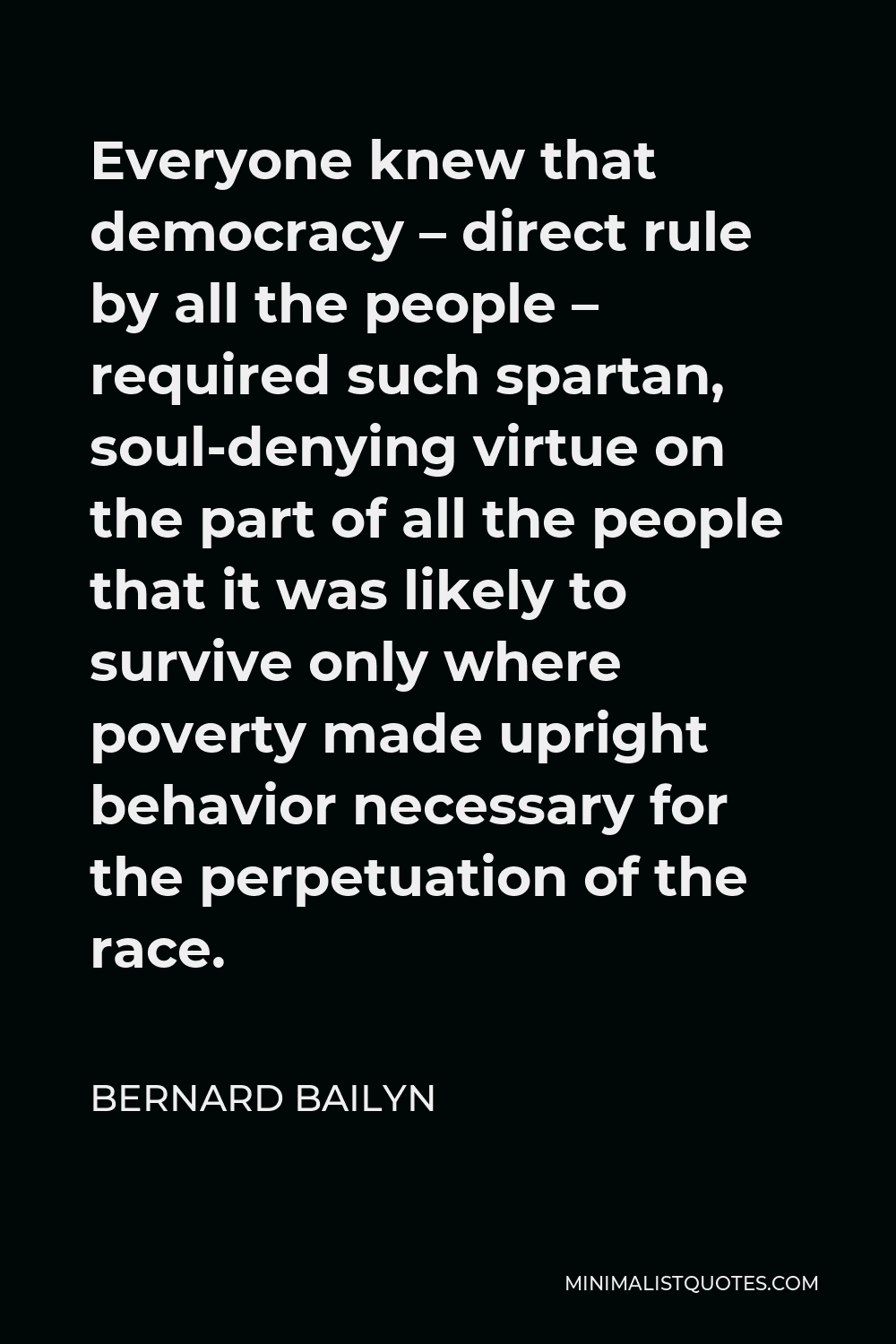
Everyone knew that democracy – direct rule by all the people – required such spartan, soul-denying virtue on the part of all the people that it was likely to survive only where poverty made upright behavior necessary for the perpetuation of the race.
BERNARD BAILYN -






Incorporating in their colorful, slashing, superbly readable pages, the major themes of the “left” opposition under Walpole, these libertarian tracts.
BERNARD BAILYN -






The full bibliography of pamphlets relating to the Anglo-American struggle published in the colonies through the year 1776 contains not a dozen or so items but over four hundred.
BERNARD BAILYN -






What were once felt to be defects-isolation, institutional simplicity, primitiveness of manners, multiplicity of religions, weaknesses in the authority of the state-could now be seen as virtues.
BERNARD BAILYN -





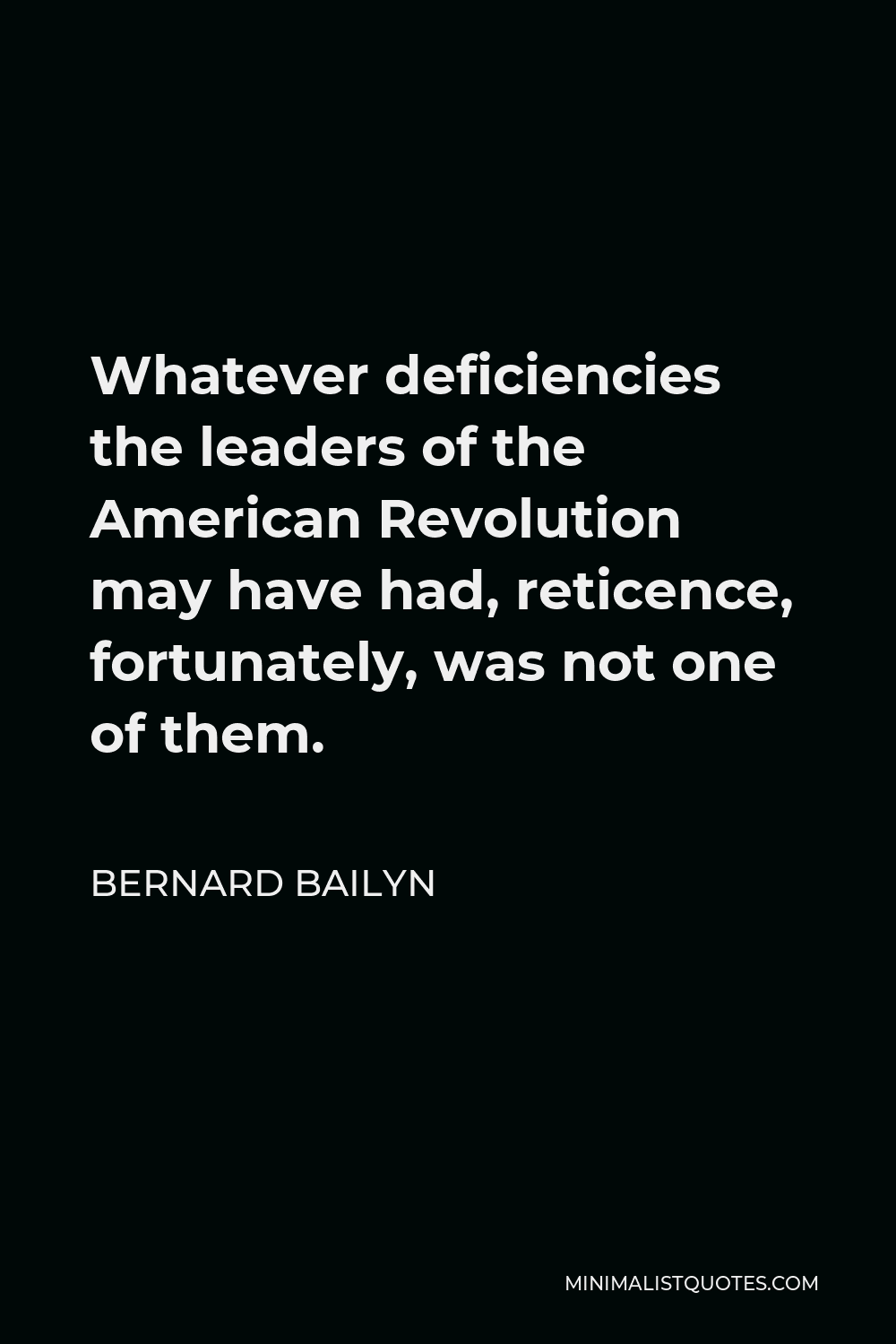
Whatever deficiencies the leaders of the American Revolution may have had, reticence, fortunately, was not one of them.
BERNARD BAILYN -





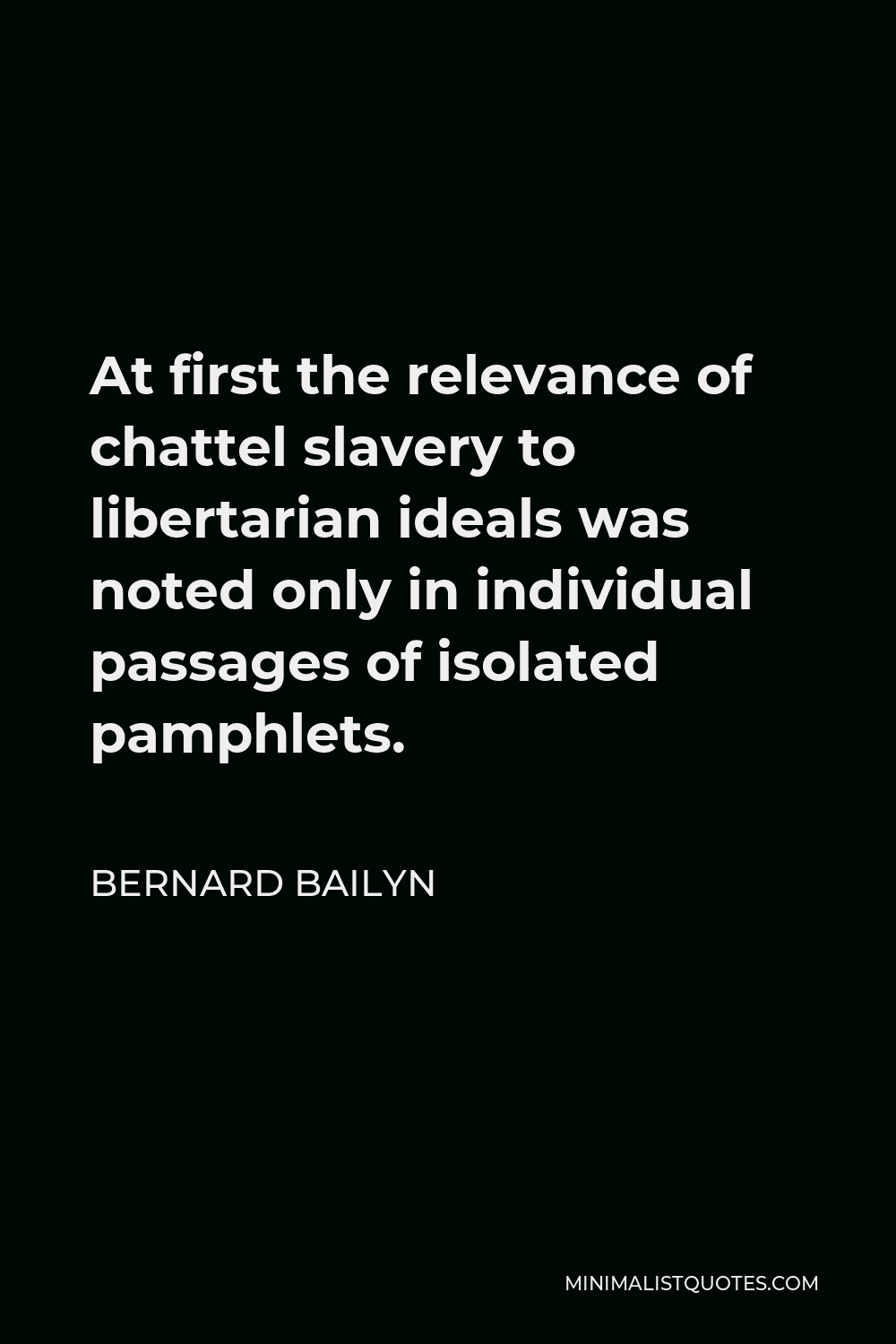
At first the relevance of chattel slavery to libertarian ideals was noted only in individual passages of isolated pamphlets.
BERNARD BAILYN -





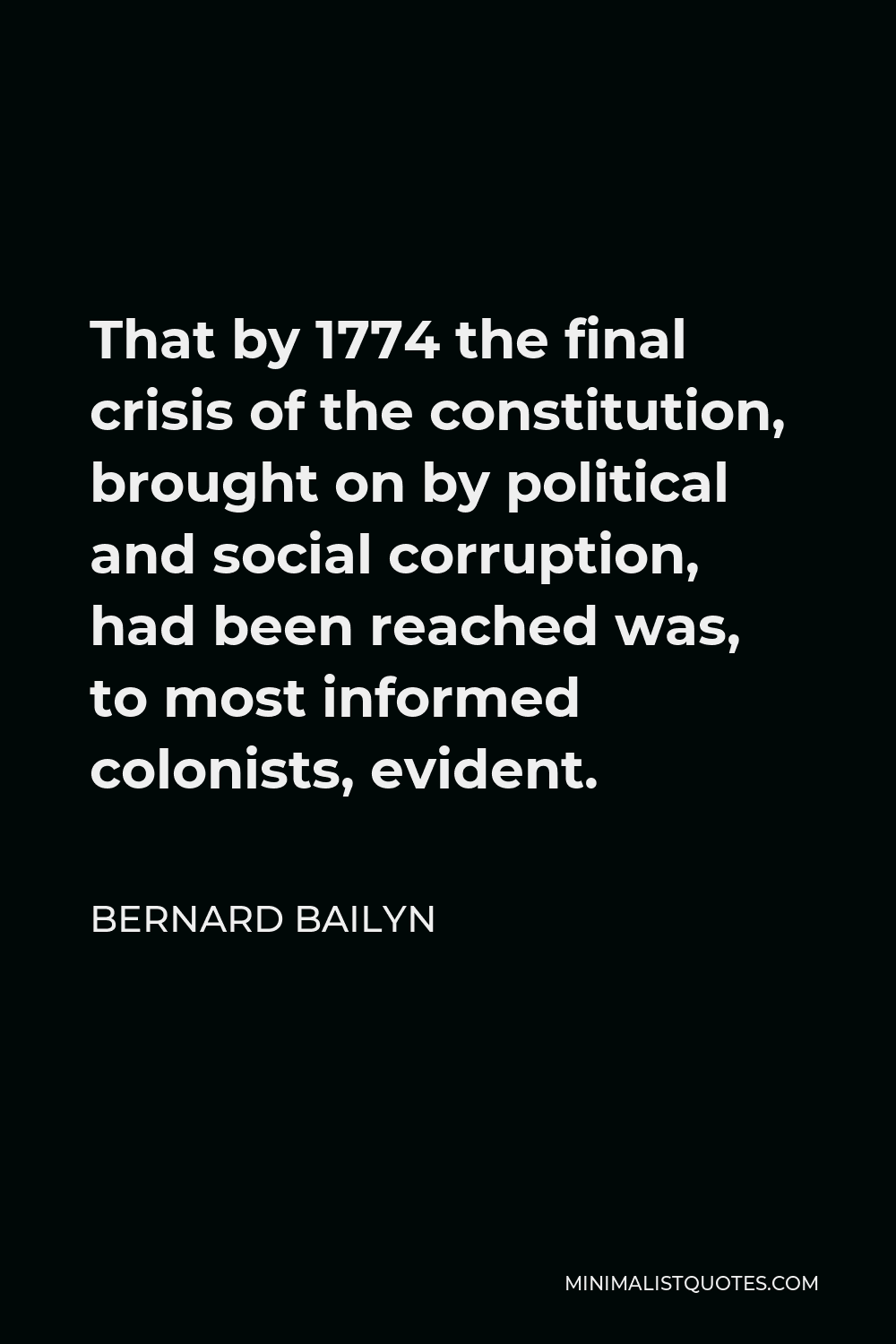
That by 1774 the final crisis of the constitution, brought on by political and social corruption, had been reached was, to most informed colonists, evident.
BERNARD BAILYN -





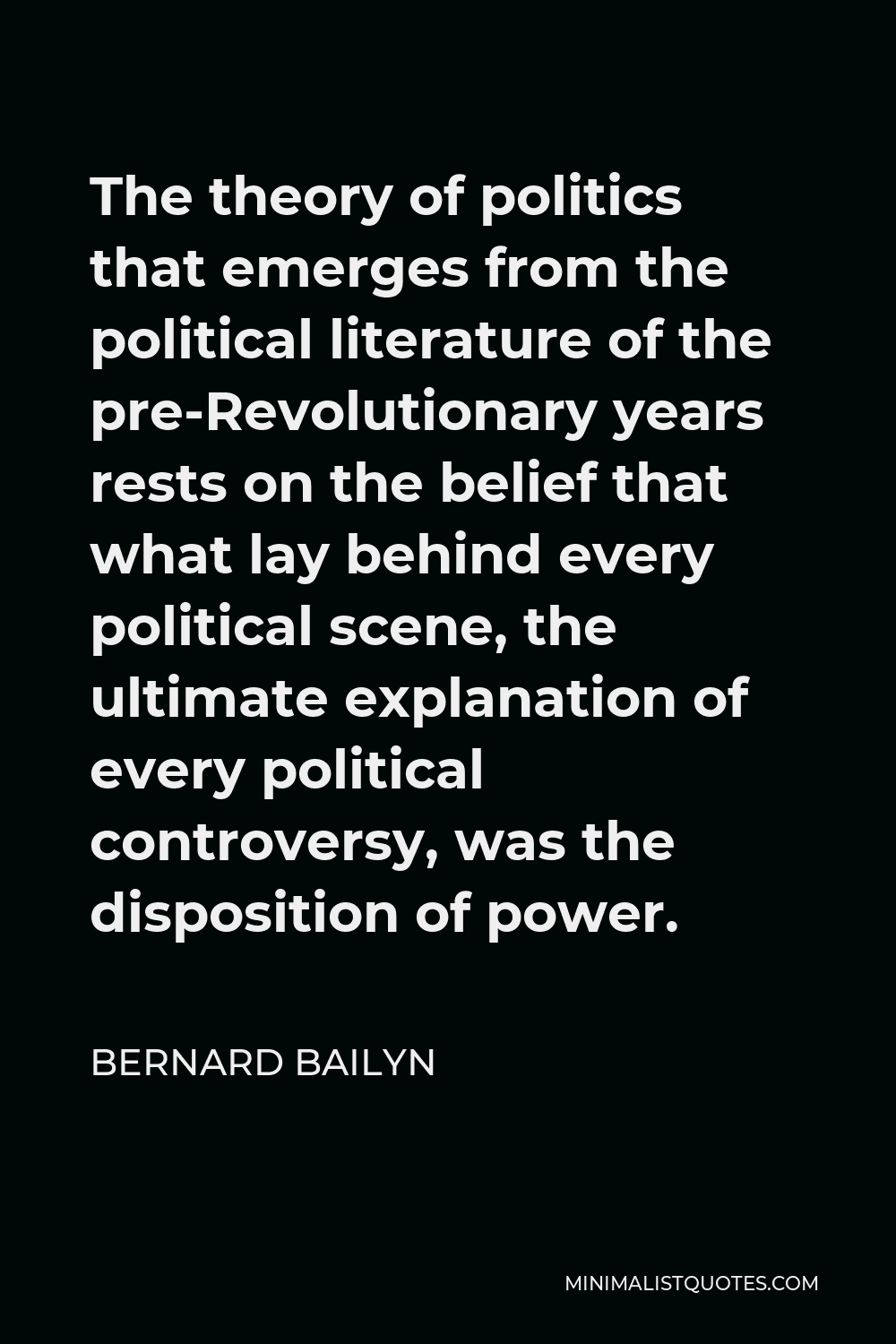
The theory of politics that emerges from the political literature of the pre-Revolutionary years rests on the belief that what lay behind every political scene, the ultimate explanation of every political controversy, was the disposition of power.
BERNARD BAILYN -





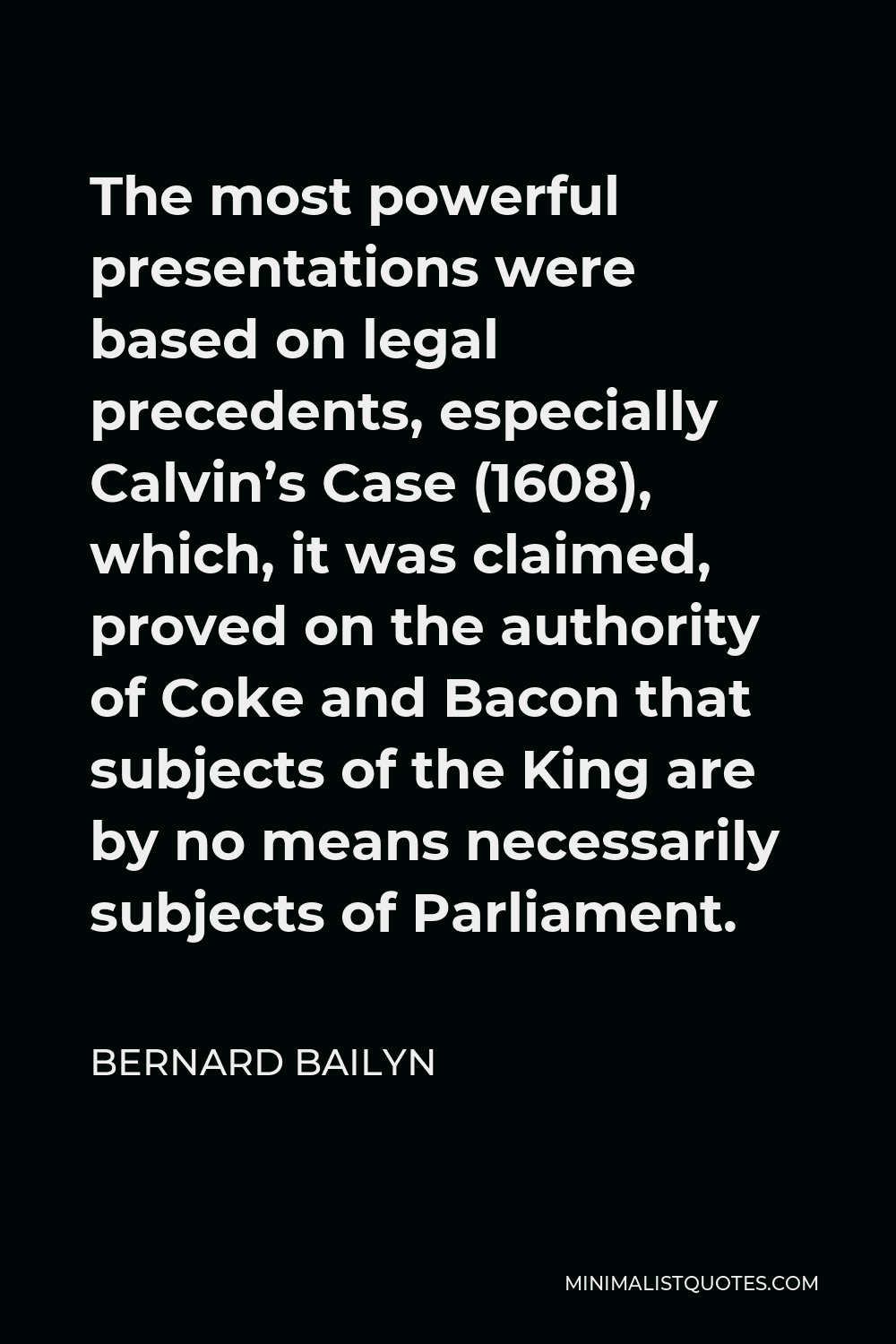
The most powerful presentations were based on legal precedents, especially Calvin’s Case (1608), which, it was claimed, proved on the authority of Coke and Bacon that subjects of the King are by no means necessarily subjects of Parliament.
BERNARD BAILYN
